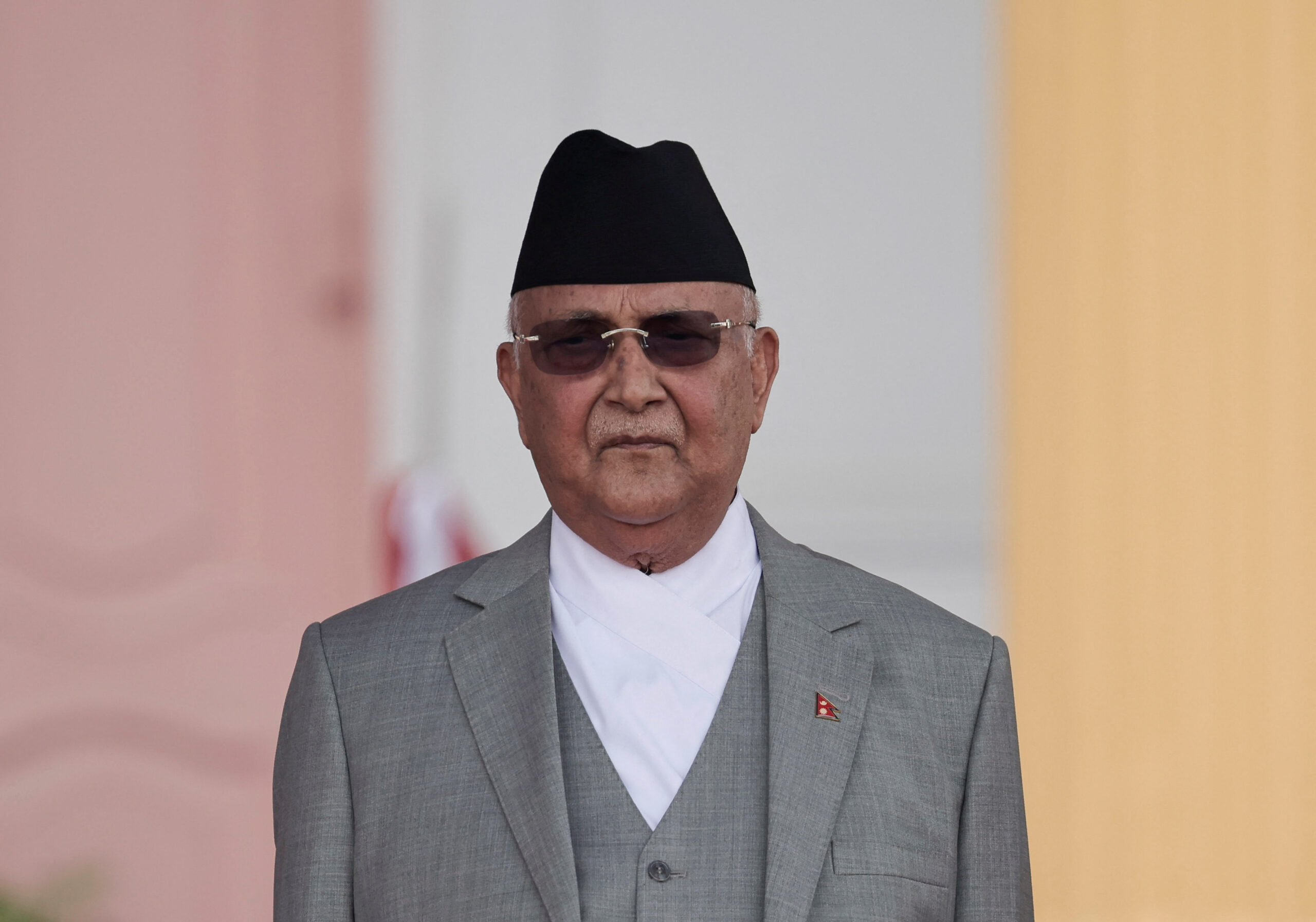- Friday, December 27, 2024
Nepal has been politically unstable since it abolished a 239-year-old monarchy in 2008. Oli’s new government will be the 14th after that shakeup

By: Shajil Kumar
VETERAN communist politician K.P. Sharma Oli was sworn in as Nepal’s prime minister on Monday, the fifth in five years, hoping to ensure political stability in the impoverished Himalayan nation that badly needs to woo investors and create jobs.
Nepal has been politically unstable since it abolished a 239-year-old monarchy in 2008. Oli’s new government will be the 14th since, with 72-year-old Oli himself returning for his fourth term.
Oli, who heads the moderate Communist Party of Nepal (Unified Marxist Leninist), was administered the oath of office by President Ramchandra Paudel, three days after his predecessor Pushpa Kamal Dahal lost a parliamentary vote of confidence.
Oli announced a 22-member cabinet, with Bishnu Paudel picked as finance minister, and Arzu Rana Deuba of alliance partner Nepali Congress (NC) named foreign minister. Deuba is the wife of NC president and former prime minister Sher Bahadur Deuba.
Dahal was forced to prove his majority for the fifth time during a tumultuous 20-month tenure after UML withdrew support to his Communist Party of Nepal (Maoist Center) and formed a new alliance with NC, the largest party in parliament.
UML leaders said the new alliance was needed to ensure political stability but have not elaborated on that.
Nepal is one of the world’s poorest countries and political instability has discouraged investment and hobbled its economic development, forcing millions of young people to seek work mainly in Malaysia, South Korea and the Middle East.
The instability has also sparked sporadic protests with people demanding the restoration of the monarchy saying successive governments had failed to live up to commitments to develop the country sandwiched between giants India and China.
Political developments in Kathmandu are watched closely by rivals New Delhi and Beijing that pour development aid and infrastructure investment into Nepal and jostle for geopolitical influence.
Oli took Nepal closer to China by signing a transit agreement with Beijing in his first term in 2015-2016, ending India’s monopoly over landlocked Nepal’s foreign trade.
On Monday, Indian Prime Minister Narendra Modi congratulated Oli and said he looked “forward to working closely to further strengthen the deep bonds of friendship between our two countries and to further expand our mutually beneficial cooperation for the progress and prosperity of our peoples”.
Analysts said NC and UML, Nepal’s two biggest parties, had taken a risk by pulling down Dahal’s government and forming a new alliance.
“This is risky and the last option,” independent analyst Geja Sharma Wagle said. “If this coalition fails to deliver governance and political stability, the Nepali people will interpret it as the failure of the constitution and the system.” (Reuters)